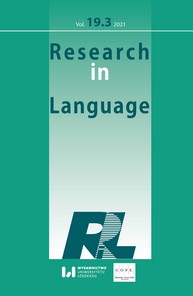NON-EQUIVALENCE IN TRANSLATION: RUSSIAN-GERMAN DIACHRONIC CORPUS-BASED DICTIONARIES OF NON-EQUIVALENT UNITS
NON-EQUIVALENCE IN TRANSLATION: RUSSIAN-GERMAN DIACHRONIC CORPUS-BASED DICTIONARIES OF NON-EQUIVALENT UNITS
Author(s): Maria AlekseyevaSubject(s): Lexis, Comparative Linguistics, Eastern Slavic Languages, Translation Studies
Published by: Wydawnictwo Uniwersytetu Łódzkiego
Keywords: lexicography; translation problems; diachronic bilingual dictionary; the mega; macro- and microstructure;
Summary/Abstract: This paper explores the essence of lexical units with no direct equivalents in other languages and introduces a bilingual dictionary of a new type. Such a dictionary is built upon a diachronic corpus of parallel translations with due consideration of the principles of present day lexicography. The suggested diachronic German-Russian glossary of non-equivalent vocabulary – realia – presents the mega-, macro- and microstructure of a diachronic translation dictionary. The glossary is of a holistic character: it can provide information on the ways different realia were translated in various periods and thus reflect the creative role of translation plurality; it can also influence the formation of translating competence, acquisition of translating skills and skills of comparative analysis.
Journal: Research in Language (RiL)
- Issue Year: 19/2021
- Issue No: 3
- Page Range: 315-333
- Page Count: 19
- Language: English

